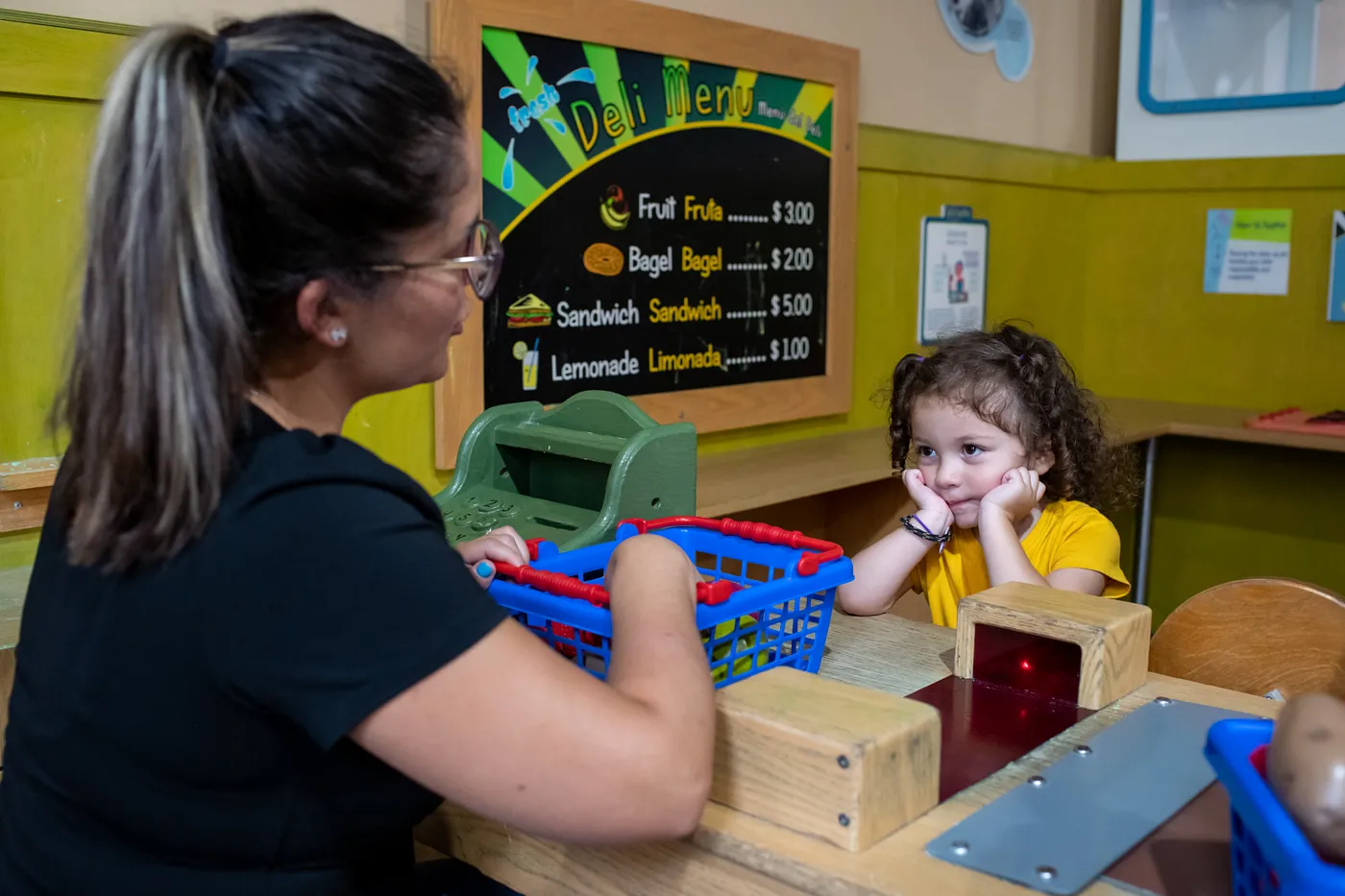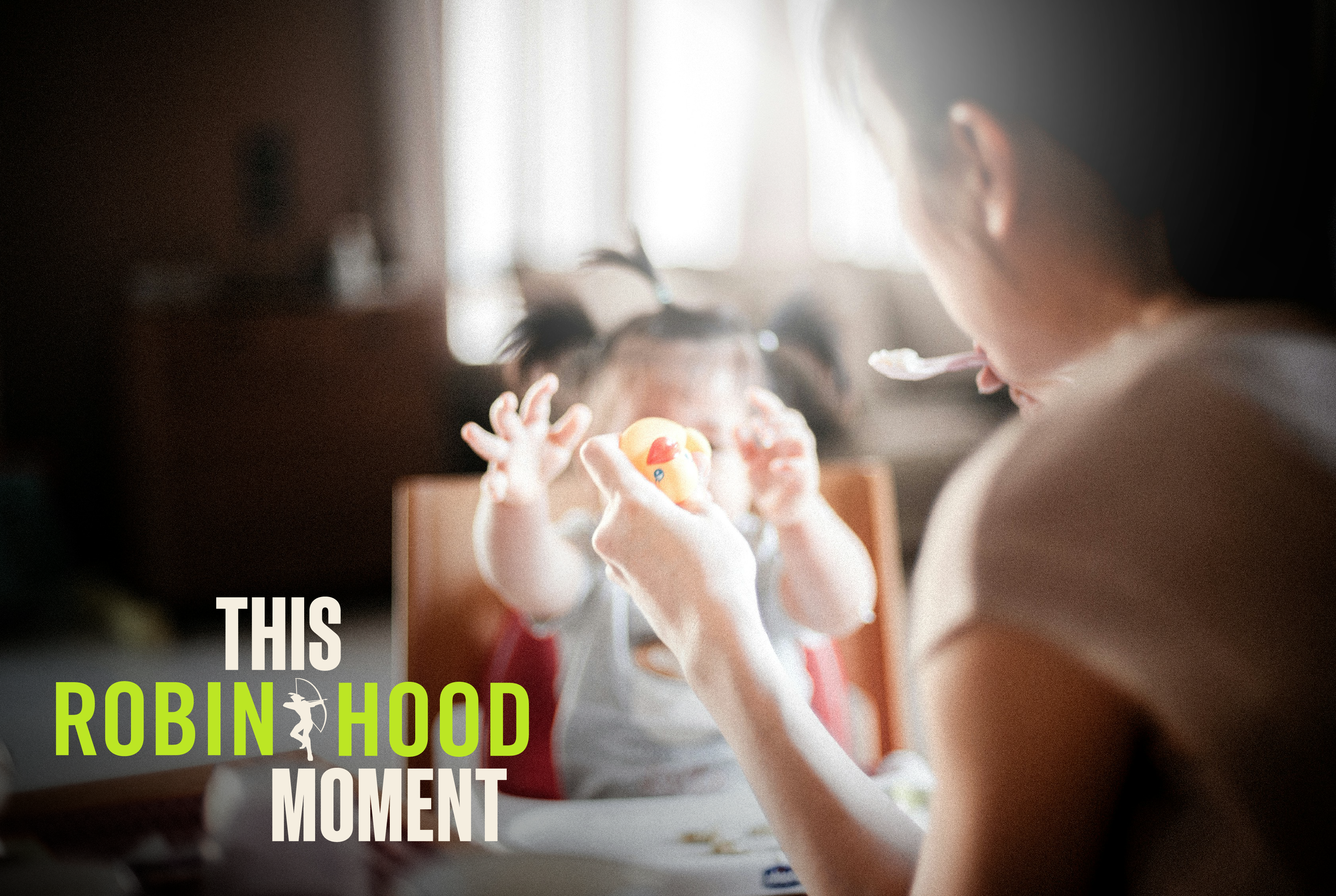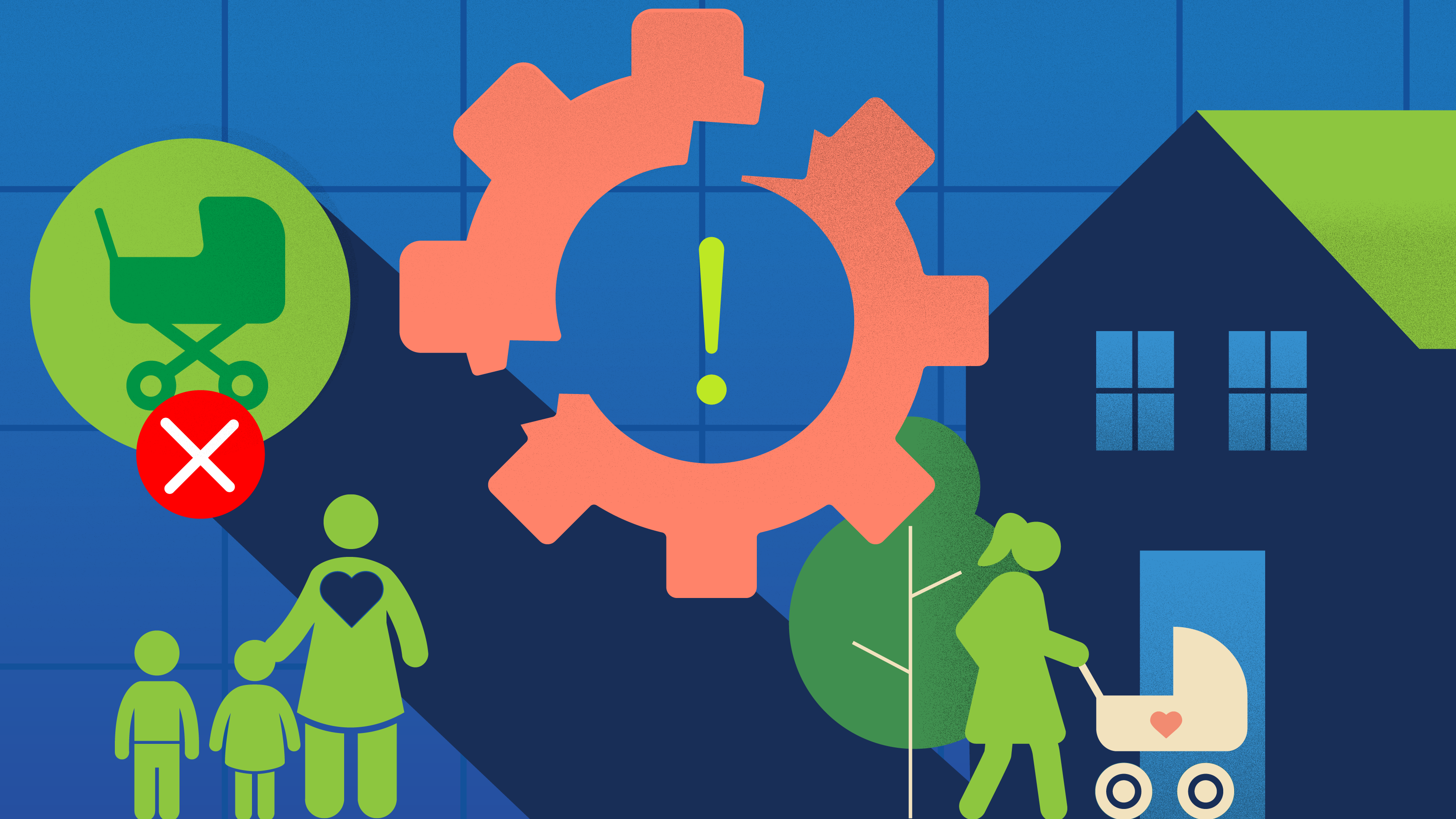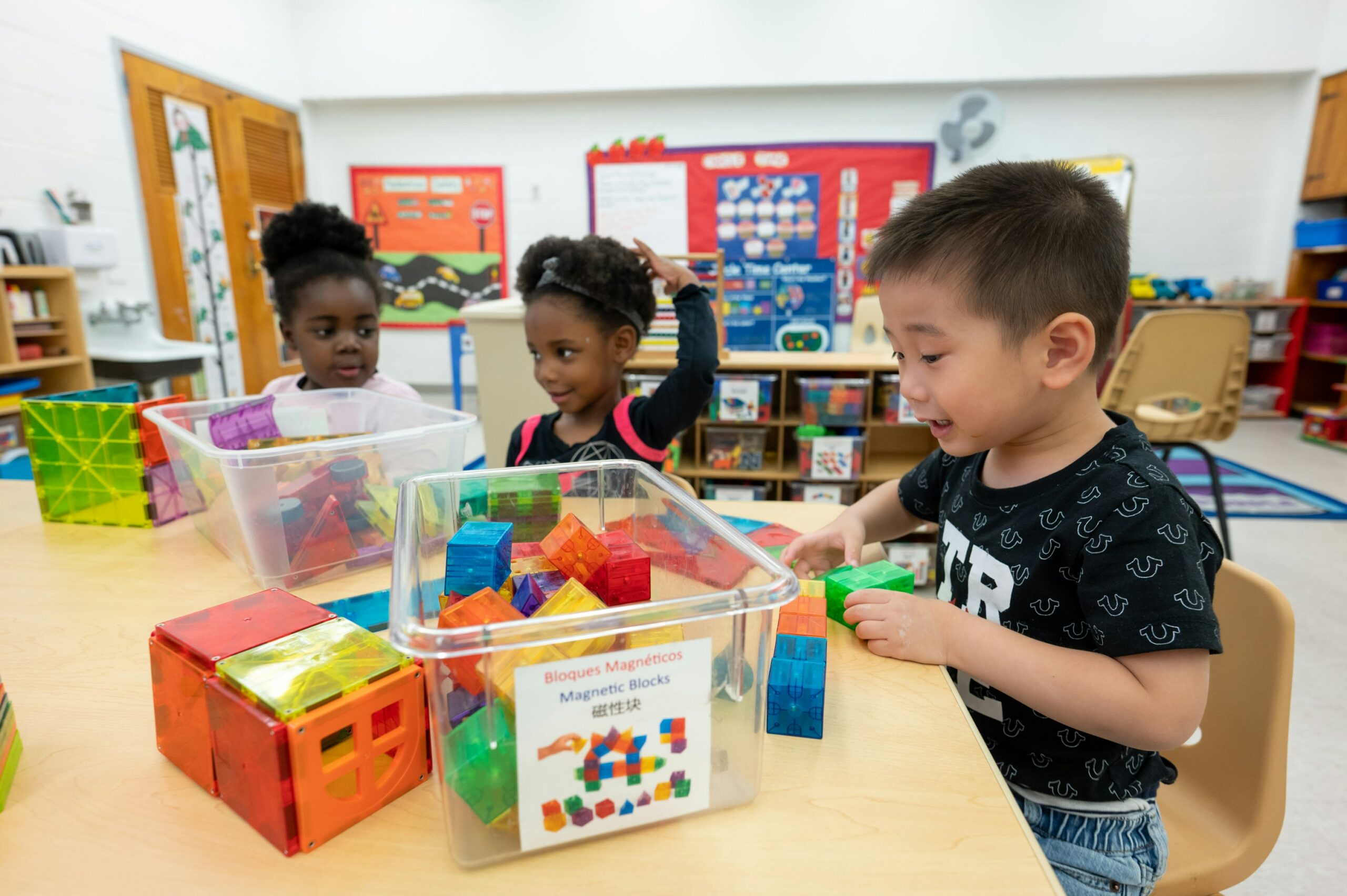Nov 17, 2021
How Maternal Health Fits Into Early Learning & Development
We are supporting early childhood through women’s health prenatal care.
By Adena Hernandez, Senior Program Officer | Early Childhood and Health

When people think of early childhood, they most often picture a 3-to-5-year-old who’s in preschool or kindergarten — and not at the ages where supportive intervention and programming are the most effective. From before they’re born to age 2, children’s brains are rapidly developing, setting the stage for lifelong learning and social-emotional skill-building.
Investments in the zero-to-2 space set kids up for success from the very start. At Robin Hood, we’re committed to intervening as early as possible, beginning with a focus on the health of mothers.
From the prenatal period to postpartum and beyond, the physical and mental health of moms has a profound, long-term effect on their kids.
Research shows that one in 10 women experience postpartum depression, and that rate is even higher for low-income women. Left untreated, maternal depression can increase rates of chronic diseases in children and their own risk of depression once they become adults. It also impacts a mother or parent’s ability to engage with their child at a critical time period for early brain development. Reducing toxic stress from untreated mental health conditions and the impact of living in extreme poverty allows for stronger, brain-building bonds between mothers and their babies.
Also disturbing are the staggering racial disparities in morbidity and mortality for infants and moms. Black women are eight times more likely to die in childbirth than white women in New York City. Black infants are three times more likely not to reach their first birthday compared to white infants.
The statistics are stark, especially given the wealth and resources available in this city. That’s why we’re investing in this incredibly complex issue to close that gap through a variety of interventions, to drive long-term improvements in health and break the intergenerational cycle of poverty.
Here’s how:
- Through a significant investment with NYC Health + Hospitals — the largest public hospital system in the city — and with Mount Sinai, we are funding a pilot of a community-based doula program in Queens, to integrate these supportive workers into clinical settings. Doulas, who are recruited from the same communities as patients, follow and support women from when they start receiving prenatal care through the first year of postpartum, providing emotional support during a stressful period. They also help link them to resources like food pantries, housing, and transportation. Emerging research shows that doulas can help reduce the racial gap in health outcomes for moms and babies by advocating on their behalf. We want to scale this pilot to further build the evidence that doulas are effective in driving improvements in health with the goal of having these services become a standard part of hospital care.
- In the Bronx, we’re working with Montefiore Medical Center to integrate community health workers into the spaces where mothers and families engage — obstetrics, pediatrics, and women’s health — and support families as they navigate the complex health care system. Our ambitious goal is to help create a center of excellence for community health workers, so there’s a more standardized curriculum and training that integrates early childhood and evidence-based practices.
- Centering Pregnancy at One Brooklyn Health gathers women who are at similar stages of their pregnancy together. When a woman comes in for her prenatal visit, she meets with a clinician, then a nurse who provides a group session where women share their experiences from challenges with breastfeeding to warning signs for postpartum issues. Bringing together mothers who are experiencing similar things provides unique social support, and Centering has been shown to reduce rates of preterm birth and low birth weight, as well as racial disparities in maternal morbidity and mortality. We’re also embedding HealthySteps, a model that integrates an early childhood specialist into OBH’s pediatric care, to help flag developmental issues and a mother’s symptoms of depression.
- We’re also investing in reducing rates of postpartum depression through NYU School of Medicine’s pilot of Reach Out, Stay Strong, Essentials (ROSE), a program that prevents maternal depression at the onset by identifying women who may be at risk of developing depression. Pregnant women gather for five sessions to talk about how to cope with stress, communicate effectively and build a social support network. There’s evidence that this model can reduce the onset of maternal depression by about 50%. While currently the model is being piloted within the Latinx and Chinese communities in Sunset Park, if we’re able to scale it across the city, this program could have a real impact on reducing depression rates among all low-income women.
These pilots are showing great promise, but there is a vast amount of work to be done. As we scale, we’re working on finding ways to reach our city’s most vulnerable families, including moms who are experiencing substance abuse and addiction. We’re also looking to work with immigrant populations we have yet to reach.
If we’re truly going to improve the lives of mothers and children for the long-term, intervening early is the one strategy that will pay it forward the most. With FUEL for 50, Robin Hood hopes to highlight just how important support for adults is to children’s development and to elevate more programs that are working for moms and other caregivers throughout our city.



